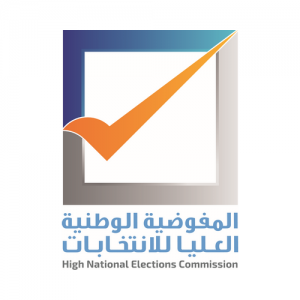By Sami Zaptia.

Tripoli, 15 December 2021:
The High National Elections Commission (HNEC) reported today that it had handed over the final report on the electoral appeals for candidates running in the planned 24 December presidential elections.
The report was handed over to the House of Representatives (HoR) Election Committee during a meeting today between HNEC head, EImad Al-Sayeh, and the head of the HoR Election Committee, Hadi Al-Saghir, at HNEC’s Tripoli headquarters.
HNEC emphasised that the report had been requested from HNEC by the HoR which includes data and details of the electoral appeals file for candidates standing in the presidential election, in accordance with the articles of Law No. (1) of 2021 and the executive regulations emanating from it.
The HoR Elections Committee was formed in the text of Resolution No. (11) of 2021 AD as a temporary committee to follow up on the electoral process with the HNEC and the Supreme Judicial Council and monitors the difficulties and obstacles encountered in this process.
Analysis
Who is going to take the responsibility to announce the inevitable elections’ postponement?
By announcing and handing over the final report on the appeals process for candidates running in the presidential elections, HNEC is signalling that it has completed its internal process and has left it to the HoR to decide what to do with their report. It is unclear if either is going to publish the report.
Many Libyans would think that in the spirit of transparency, accountability and democracy, the report would be. But that implies many things about Libya’s democratic process, including a healthy democratic dynamic between the electorate and their representatives.
Will the HoR act on the report?
With the HNEC report unpublished, we are left to speculate on its possible content.
For example, does the report say that according to the conditions in the election laws set by the HoR, HNEC disagrees with some of the law courts’ interpretations and subsequent reinstatement of some candidates?
Does the report say that its investigations have, for example, discovered that some candidates hold dual nationalities?
Does the report say that its investigations have, for example, discovered that some candidates have presented fake documents (academic qualifications) or made false statements?
What about candidates wanted by the International Criminal Court?
How long will the elections be postponed for?
There is debate in Libya as to who has the ultimate authority to postpone Libya’s elections. This is a poisonous chalice that everyone wants to pass over to someone else. Both HNEC and the HoR know it is going to be unpopular. Most Libyan stakeholders are publicly in favour of elections. Those who seek postponement use legal/constitutional reasons for any delay – for the purpose of better elections and better outcomes which will lead to post-election stability. Once such justification is the need for a constitutional basis for the elections.
However, does the HNEC report to the HoR recommend a postponement of the elections on technical grounds? One such technical reason could be the permeable HoR election law that makes the election process and results very susceptible to legal challenges.
HNEC has sought a tightening up of the language of the election law to prevent just that.
Another could be the 5,385 candidates standing for parliamentary elections that HNEC is struggling to process and vet. More time to process and vet could be justified, although the parliamentary elections were not due to take place until sometime in February 2022.
On the other hand, the HoR, as the ultimate legislative authority, has the power to make a political decision to postpone the elections. Such a decision will not be easy. There will be much domestic and international pressure. Accusations of ‘‘status quo dinosaurs’’ will resurface again.
There will be the fear that once the psychological barrier of postponing the elections once, a precedent has been set and they could be postponed again, and again and again – until some unknown distant future. If there is a postponement, a clear and unmoveable new date must be pre-agreed and announced.
The fear of another political vacuum?
The elections have formed a political focal point for Libya since they were announced last year. Their postponement could send Libya spiralling into another political vacuum. Equally, those against any postponement fear that more time will simply give the enemies of democratic elections and change more time to scheme for yet another postponement.







